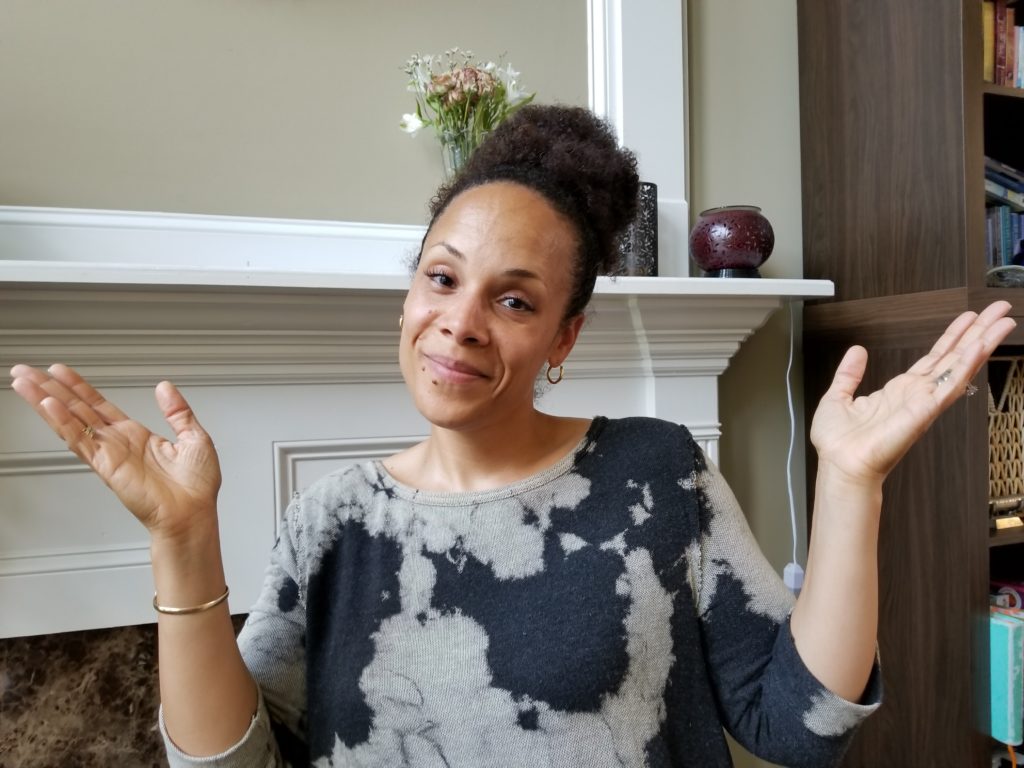Let’s get to it!
Last week we talked about developing awareness around the thoughts your brain offers you. That alone is powerful! The brain is so often on auto-pilot and unsupervised that it’s amazing how much has gone unnoticed when you start paying attention to it. This week, I want to help you go further. What do you do with the thoughts once you are aware of them?
But before you can decide what to do with your thoughts, you have to know that what is going through your head is actually a thought. A thought is something you can decide to change because your brain made it up. The problem is that a lot of our thoughts seem like facts – we want to believe that the thoughts we have are true! So often a thought goes through our mind and we simply accept it.
So what’s the difference between thought and circumstance (or fact)? Let’s do the easy one first: A circumstance is a neutral fact. “It’s 84 degrees F outside” is a circumstance. Dishes in the sink are a circumstance. Flowers in a vase are a circumstance. The number on the scale is a circumstance. I know, that last one feels less like a neutral fact! What’s a thought? The thought comes from what you decide to think about the circumstance. “It’s hot outside”, “My kitchen is a mess”, “My husband loves me so much he brought me flowers”, and “My weight is out of control” are all thoughts. You might decide that you like some of these thoughts or you may not, but these are not facts. If anyone in the world could disagree with your thought, then it’s not a fact. You can keep it, but it’s just a thought you agree with!

Why does it matter? Your power is in your ability to choose thoughts that take you to where you want to go. If your goal is to lose ten pounds, you want to choose thoughts that help you get there. The problem with thoughts like “My weight is out of control” is that they tend to promote shame, judgment, negativity, and a sense of hopelessness. When you feel that way, you’re a lot less likely to be successful at moving yourself toward your weight loss goal. Just like a teenager, you’ll eventually tune out your own negative thoughts. They’re still there running the show, but you won’t be willing to look at them with compassion and curiosity, which you need to change your thinking. If you want to change, the power is in your mind.
How do you discern the difference between a thought and a circumstance? Simple – ask yourself if it’s true. If your brain tried to fight you and argue that it’s sort of true, then ask if it’s 100% true. If you can’t say yes, then it’s a thought, not a circumstance.

Where you are today, the life you live right now results from the thoughts you have been thinking. You’ve practiced certain thoughts so much that you have created a belief for yourself, and you live according to that belief. If you want to create new results in your life, you need new thoughts to practice. How? You become aware of your thoughts, question them, evaluate them for what results they are creating, and then create new thoughts to replace the old ones if they aren’t producing what you want. When you believe the new thoughts, you will begin creating new results in your life. Everything you want to create or become is possible once you manage your thinking!
You might be thinking, “Well, that sounds straightforward, but I need help actually doing it!” Thought work is powerful and simple, but it’s much easier to do it with help. If you want help, email me at drandreachristianparks@gmail.com and we can set up a free consultation where I’ll help you get started, and we’ll decide if we want to work together. You don’t have to do this alone!
Here’s your video help for the week!
